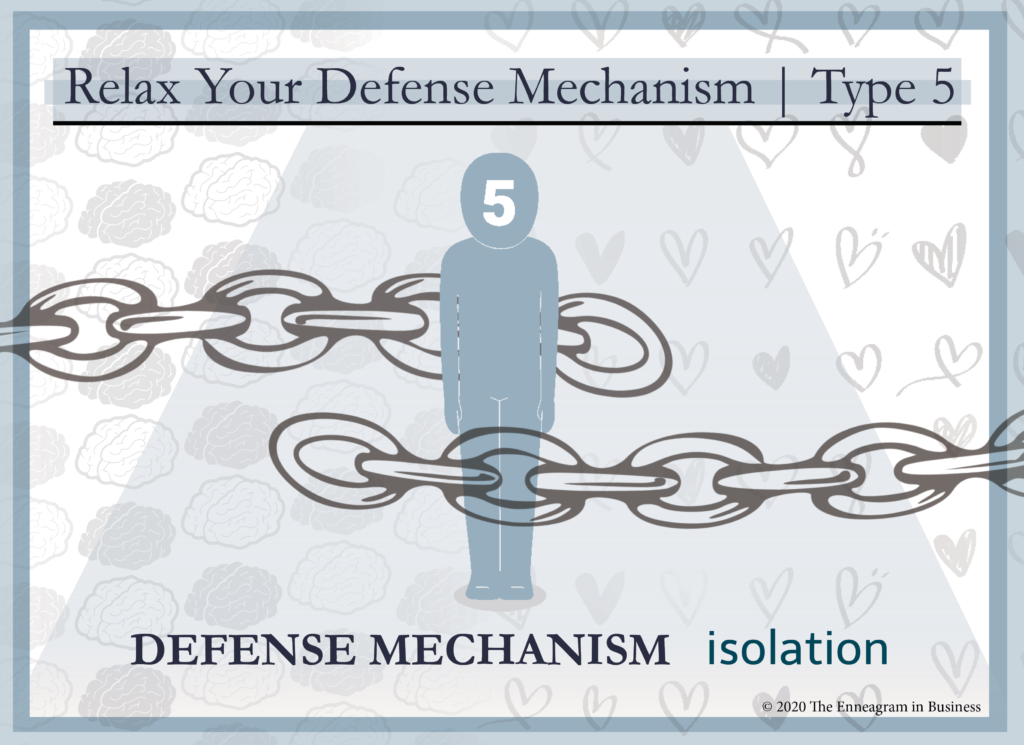Learn to lessen your primary defense mechanism | Type 5
After our most recent 9-part blog series on the topic of how our defense mechanisms serve as guardians of our type-based ego structures, many people asked for ideas about how to work with and lessen our defense mechanisms. This new 9-part series responds to that request. Please note that we all use many defense mechanisms, each type has a particular defense that arises when we are the most throttled, anxious, sad or angry. In addition, defense mechanisms serve a protective function, so it is neither realistic nor even desirable to try to remove them completely, lessening them and relaxing them, however, can be beneficial in reducing our ego-structure’s hold on our development and transformation, both psychologically and spiritually.
The Five’s primary defense mechanism | isolation
Isolation occurs in Fives as a way for them to avoid feeling overwhelmed, drained or energetically empty and depleted. Fives isolate themselves by retreating into their minds, cutting themselves off from their feelings, and compartmentalizing – that is, isolating each part of themselves from the whole or the related parts. For example, Fives separate their thoughts from their feelings and/or feelings from behaviors, as well as separating their personal and work lives. Fives may also isolate themselves from other people and separate their relationships so that their friends never meet one another; in fact, some Fives even have secret lives.
How to lessen isolation
Allow yourself to both offer and accept resources from others, however small
Your independence and autonomy are admirable and useful, yet they can also cause you to be less resourced than you need to be and less connected to other people. Learn to do this, however counter-intuitive it may feel, and you can do it in small steps. To make an offer to others, one idea is to simply offer a little more time listening to a person than you would normally do. To accept a resource from another person – for example, asking someone for an idea or referral, accepting an offer from someone for some extra time so you can share some of your thoughts – are important first steps. Start small so you can expand if you want to.
Ginger Lapid-Bogda PhD, the author of seven Enneagram-business books, is a speaker, consultant, trainer, and coach. She provides certification programs and training tools for business professionals around the world who want to bring the Enneagram into organizations with high-impact business applications, and is past-president of the International Enneagram Association. Visit: TheEnneagramInBusiness.com | ginger@theenneagraminbusiness.com


Comments are closed.